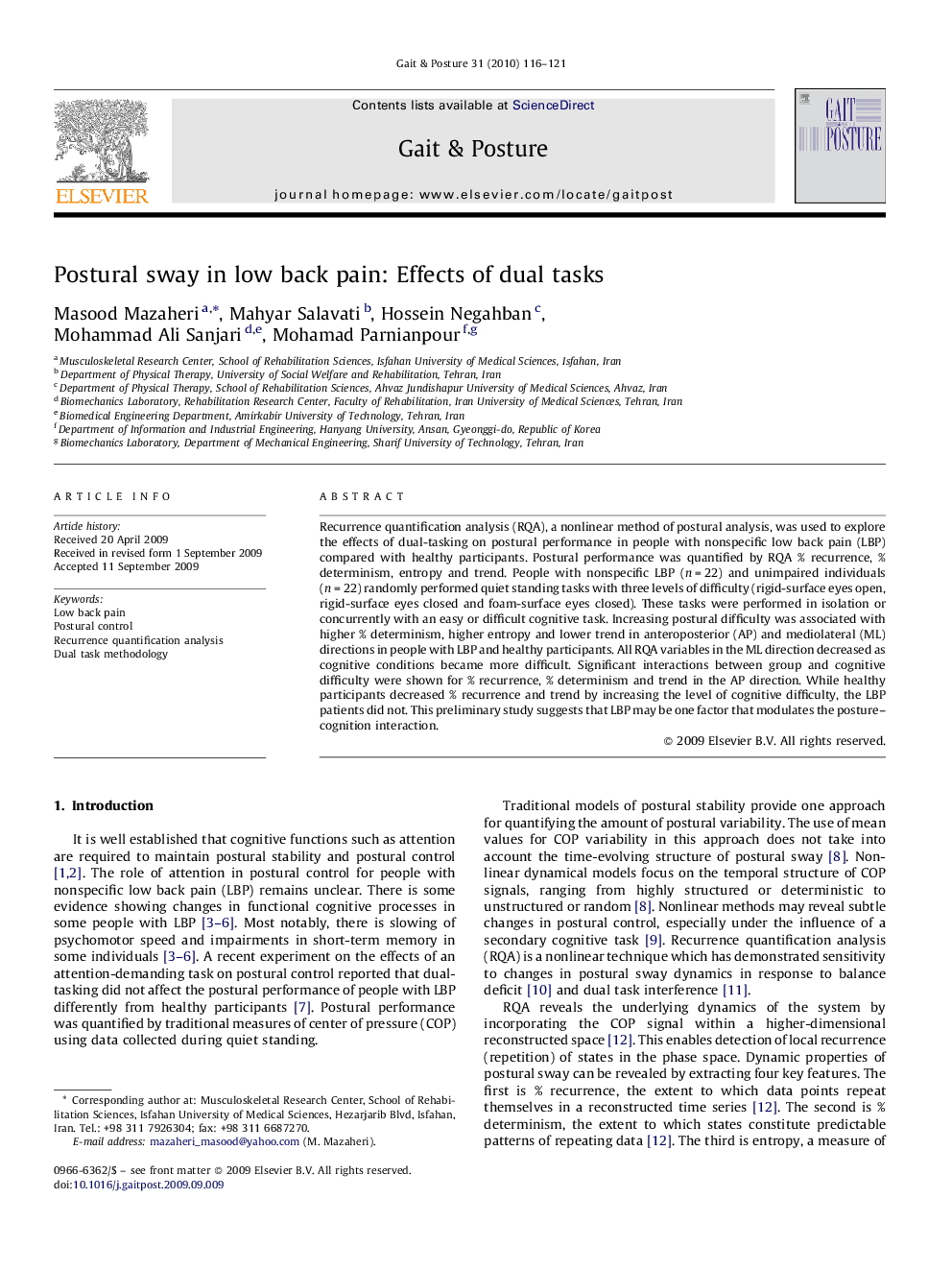| Article ID | Journal | Published Year | Pages | File Type |
|---|---|---|---|---|
| 4057211 | Gait & Posture | 2010 | 6 Pages |
Recurrence quantification analysis (RQA), a nonlinear method of postural analysis, was used to explore the effects of dual-tasking on postural performance in people with nonspecific low back pain (LBP) compared with healthy participants. Postural performance was quantified by RQA % recurrence, % determinism, entropy and trend. People with nonspecific LBP (n = 22) and unimpaired individuals (n = 22) randomly performed quiet standing tasks with three levels of difficulty (rigid-surface eyes open, rigid-surface eyes closed and foam-surface eyes closed). These tasks were performed in isolation or concurrently with an easy or difficult cognitive task. Increasing postural difficulty was associated with higher % determinism, higher entropy and lower trend in anteroposterior (AP) and mediolateral (ML) directions in people with LBP and healthy participants. All RQA variables in the ML direction decreased as cognitive conditions became more difficult. Significant interactions between group and cognitive difficulty were shown for % recurrence, % determinism and trend in the AP direction. While healthy participants decreased % recurrence and trend by increasing the level of cognitive difficulty, the LBP patients did not. This preliminary study suggests that LBP may be one factor that modulates the posture–cognition interaction.
